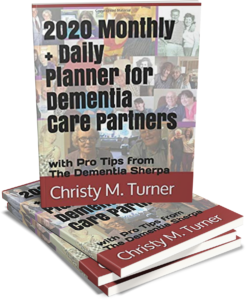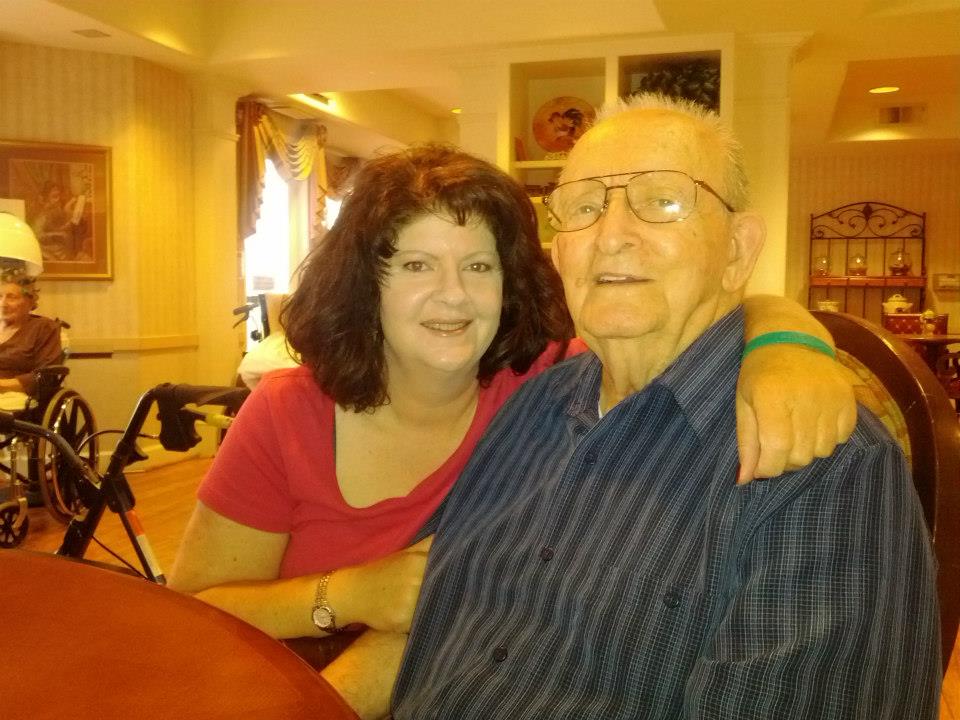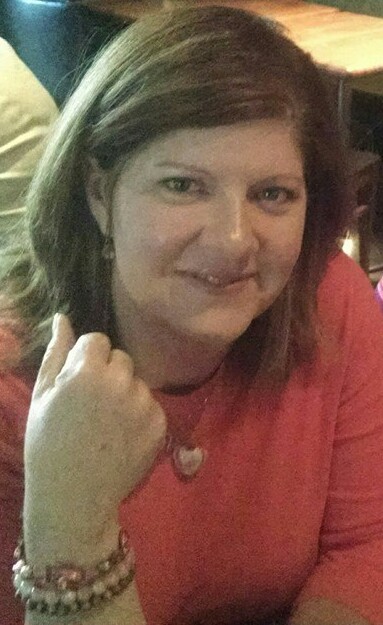Updated November 2, 2019
Making Decisions in a Crisis
Making decisions in a crisis is one of the worst situations you’ll ever find yourself in. It can happen to any of us, at any time. Sometimes, even if you think you’ve planned well enough to avoid it.
Although my papa Dalton lives in a memory care community and is on hospice service, my mom is his primary care partner and legal decision-maker. She visits daily, often assisting him with eating at mealtimes. She’d recently noticed a sudden onset of pain and requested a mobile x-ray unit come check for a problem.
Now, holding an x-ray report she couldn’t decipher, the community was asking her to make a decision. Did she want them to send Papa out for evaluation for surgical repair, or keep him at the community and call hospice for re-evaluation?
When The Unexpected Happens
We’d just sat down to watch the Alamo Bowl, looking forward to Oregon’s inevitable trouncing of TCU. And then, real life happened: my mom, clearly rattled, called. She said she wanted to read me some papers over the phone so I could tell her what the words meant. She said she needed to make a decision.
Mom graduated nursing school. My introduction to long-term care, to people living with dementia, came via going to work with her when I was 8 years old. My parents moved Mom’s mom, my grandma Anna, into their home for the last five years of Anna’s life because after 14 years of caring for a wife living with Alzheimer’s disease, Papa Dalton was feeling like he was in over his head.
Mom willingly, happily, and lovingly acted as primary care partner for her mom. Just two weeks after Grandma Anna died, Papa Dalton was diagnosed with Parkinson’s disease. Parkinson’s-related dementia manifested within a couple of years.
All this to say: my mom’s no dummy. She’s experienced. She speaks the language, and she knows this stuff backwards, forwards, and sideways. The woman can roll with a punch. But making decisions in a crisis really is that challenging.
The If-Then Game
Mom read me the x-ray report, which showed a hip fracture and overall age-related bone deterioration. Then we began talking through the options.
Skipping past the first step of any decision, we focused on what each option looked like in its entirety. We played the “if-then” game. If the decision was to go the the hospital, then that meant a transfer to a gurney. That would likely be very painful for Papa.
Staying with the if of going to the hospital, we kept going: The late hour probably meant an all night wait in the ED. A change of environment would cause increased confusion. The likelihood of a surgeon signing off on the surgery was exceedingly slim, given Papa’s advanced age (90) and underlying conditions.
We added an if and played that out: what if a surgeon would agree to do surgery? Then there was the possibility of Papa not living through it. But if he did, then the anesthesia would worsen his confusion.
He would be an extremely poor candidate for physical therapy because of his inability to understand directions and post-surgical hip precautions. The incision site would need nursing care, which would mean transferring to a skilled nursing facility.
That would mean another unfamiliar environment, again worsening his confusion. The likelihood of ever returning to his memory care community would be extremely slim.
Is Calling Hospice Actually Doing Something?
Going back to our original if question, we talked through the other option, calling hospice to come do a re-evaluation. At first blush, that didn’t sound like it would accomplish much. They’d just reassess for proper pain management. Of course, that would help ensure Papa was comfortable for his final stretch of life.
Despite hospice sounding like the “do nothing” choice, it was the obvious winner to us. It was the one my mom had already come to intuitively. She just needed to run it by me, to make sure she was as clear in her thinking as she and my aunt already thought.
My mom was lucky: she recalled Papa having a rare moment of clarity a couple of weeks earlier, telling her, “I don’t want to go on like this.”
Many people are uncomfortable with anything less than a do-everything-possible plan. It’s the natural byproduct of loving someone and living in the 21st century. We think virtually every medical problem has a solution.
We know that’s not true. Just like we know dementia is incurable. But we think there must be something else we can do. A magical or miraculous something else that will treat everything else related to the thing we cannot fix or cure.
What’s The Kindest, Most Loving Thing We Can Do?
Often, we fail to see the domino effect, because how can we? This person we love isn’t okay, so we need to do something! In the grip of fear and heartbreak, we’re making decisions in a crisis. And they aren’t always so good. It’s excruciating to see the natural and unavoidable disease progression manifesting in myriad ways.
And part of that, too, is our focus on memory loss when we’re talking about dementia. Our focus is narrowed in on that, because that’s what everyone talks about. There’s very little about all the other things that can or do happen with dementia. Like a hip fracture.
So we lose sight of how making sure someone is pain-free for the remainder of his life is most definitely doing something. It’s doing something kind, compassionate, and loving.
Crisis is Overwhelming
It is incredibly difficult to have the wisdom to make the right choice in the midst of a crisis. When your heart is pounding and your stomach is twisting, how do you make a good choice?
When you just don’t know what the “right” thing to do is, how do you figure that out?
What about when you have no idea what your loved one would want? Or when nobody has explained to you all of the “if-then” equation? How can you possibly be making decisions in a crisis and expect to come up with the best one possible for your specific situation then?
Honestly, I think it’s most accurate to say it’s incredibly difficult to have enough wits about you to make any choice at all in the midst of a crisis.
As with my mom’s experience, even a well-educated woman with a clear idea of the overall plan can quickly get sucked into the overwhelm and stress of a crisis. Think about how much worse it would be without any idea of what to do, where to turn, or how to navigate through it.
The predictable part of life is that it’s unpredictable. (To wit, what actually happened in the Alamo Bowl, versus what I thought would happen.)
Start Talking
I share this with you as a warning bell. If you haven’t given any thought to what you would do in such a situation, please start thinking about it.
Start having conversations with your family. Dig out documents and double-check that they say what you think they say. It’s true no one likes to talk about this stuff. And talking about end-of-life decisions and if-then situations brings up childhood “stuff” (seriously!).
I say “start having conversations” because this isn’t a one-shot deal. With such an emotional minefield to navigate, you’ll need to do it in increments. People will need time to think about what they want, or don’t want. As unpleasant as the conversations can be, making decisions in a crisis is worse.
Hard as it is to have these conversations, we all die in the end. The question is, how much are we willing to go through–or willing for our loved ones to go through–on the way to that inevitable end? Planning for a good end means having answers for making decisions in a crisis.
Epilogue: Papa Dawson died peacefully and pain-free 11 days after this crisis came to the forefront. Mom has never regretted her decision.
NOW AVAILABLE!

2020 Monthly + Daily Planner for Dementia Care Partners
with Pro Tips from The Dementia Sherpa
Designed with YOU in mind, to make it easier for you stay on top of it all–and feel supported along the way.
Record the details you usually keep in your head, keep track of all the appointments, and celebrate all your successes throughout the year.
Check it out


